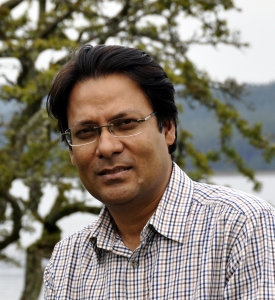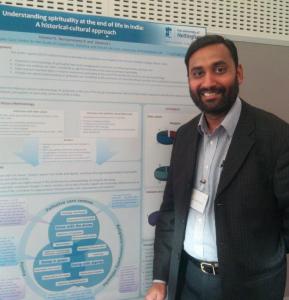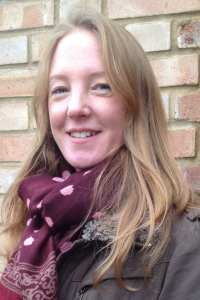
At the end of January 2014 I learned that I had been successful in winning a Wellcome Trust Senior Investigator Award in the Medical Humanities. The new project starts on 1st March 2015 and is focussed on improving our understanding of interventions at the end life. It will take a global perspective and will adopt a broad definition of ‘interventions’ – from policy and advocacy initiatives to service level and clinical activity. The project starts from the proposition that how we die has become a ‘contested space’ of competing perspectives. We need to learn more – in a comprehensive way – about interventions at the end of life that appear to have worked, as well as others which have run into problems.
The study will be quite different from my previous interests in mapping the global development of palliative care (though separately I will be continuing that stream of work). The new project will focus on mapping and analysing interventions across cultural and resource contexts. It will draw on theoretical frameworks from development and innovation studies as well as global health and policy perspectives. It will also make use of a strong interpretive framework drawn from ethnographic and narrative approaches.
I am delighted to say that the project team for the Wellcome Trust study has now been assembled and it is my pleasure to introduce and welcome the key team members here. To follow our progress, please keep an eye on this blog and on our website. In due course we will also be advertising for a full time, permanent position of Lecturer in Social Science (End of Life Studies) – look out for that in early 2015 and get in touch with me direct for more details – david.clark.2@glasgow.ac.uk
Dr Shahaduz Zaman
I was born and brought up in Bangladesh, and started my career as a community health physician in the rural parts of the country. Before moving to the UK in 2009 to join Newcastle University, I was working as an Associate Professor at the School of Global Health, BRAC University, Bangladesh. I have an interdisciplinary background, with a PhD and Master’s in Medical Anthropology, a Master’s in Public Health (MPH), and a Bachelor of Medicine and Bachelor of Surgery (MBBS).
My fields of research and teaching include global public-health interventions and policies, hospital ethnography, and qualitative research methods. The focus of my research work is mainly in middle and low-income countries.
I worked at the Institute of Health and Society, Newcastle University, as a Senior Research Associate, and coordinated two EU-FP7 funded multi-country research projects involving Turkey, Syria, Palestine, Tunisia, Jordan, and Lebanon. One project comprised a comparative analysis of health policies, and ethnographic exploration of people’s health-seeking behaviour in relation to Non Communicable Diseases (NCDs). The other project involved capacity-development in medical anthropology in the partner countries. Apart from these Mediterranean countries, I have led collaborative medical-anthropological and medical humanities research projects involving South Asian and African countries.
I led the ‘Global Health’ graduate course at Newcastle University. I also worked as a visiting faculty at the University of Heidelberg, Germany, Dukuz Eylul University, Turkey, as well as the University of Amsterdam, The Netherlands. I received my PhD from the University of Amsterdam. My doctoral research was an ethnography of a hospital in Bangladesh, one of very few hospital ethnographies in non-Western countries, which has now been published as a book. I have written several peer-reviewed journal articles and book chapters on medical anthropological aspects of global health.
From March 2015 I will be involved with the Wellcome Trust funded project ‘Global Interventions at the End of Life’, and will be working closely with Professor David Clark, who is the Principal Investigator of the project. The study seeks to generate new theoretical propositions and empirical knowledge that will lead to more sustainable and appropriate end-of-life interventions across cultures and settings. I will take a leading role in the delivery of the project. More specifically, I will conduct in-depth case studies in different international settings using multiple methods of enquiry, and will coordinate project-related activities.
Hamilton Inbadas
I am an ordained minister of the church of South India – Kanyakumari Diocese – with several years of clinical, teaching and research experience in palliative care in India. In 2004 I joined the palliative care team at the Christian Medical College, Vellore, India as a chaplain and was involved in providing spiritual care and psychological support to palliative care patients and their families. I was also involved in teaching spiritual care, communication skills and ethical issues in end of life care for medical, nursing, allied health and theology students both at the Christian Medical College, Vellore and various other institutions across India.
I hold bachelor degrees in English Literature and Theology and masters degrees in Journalism and Bioethics. My bioethics masters was an Erasmus Mundus masters degree at the Katholieke Universiteit Leuven, Belgium, Radboud University, Nijmegen, the Netherlands and the university of Padova, Italy. Currently I am close to submission of my PhD thesis at the University of Nottingham. For my PhD I undertook a cross-disciplinary research involving philosophical and theological analysis as well as an oral history study to explore the historical-cultural understanding of spirituality at the end of life in India.
I am delighted to join the team that will study global interventions at the end of life as a Research Associate. My primary responsibility will be the ‘desk based’ data gathering aspect of the project. I will also be involved in literature searches and reviews and collection of primary data through interviews and surveys. Working closely with the other members of the team, my role will also include reporting the results of the study through publications in international journals and presentations at national and international conferences and meetings. I look forward to starting work with the research team and engaging with the wider end-of-life-care world through this timely and exciting project.
Catriona Forrest
As the Public Engagement Officer, my role is one which will develop and change as our research progresses. Starting with the development of a public engagement and communications strategy, I will help our researchers explain what it is they’re doing, why and for whom. Our website, blog and social media will be central to my work, as well as organising public events and documenting our progress on film. I will search for funding for projects which will increase the impact of our work locally, in Scotland and internationally. And I will make sure our research findings will be available in a useful form after the project finishes.
I have a degree in Scottish Language and Literature from the University of Glasgow, and a qualification in information management. I have worked in research, communications and the media for most of my career. My first ‘real’ job was in the Netherlands, where I worked as a librarian at the European Space Agency, followed by another three years as Open Sources information officer at Europol. On returning to Scotland I joined the BBC, where I worked my way from archive research into journalism and digital content production. Since setting out as a freelancer in 2012 I have been involved in the production of a variety of television documentaries, music programmes and events, as well as commercials, sports and comedy programmes. I have produced training and instructional videos, both operating a camera and editing. And I have worked on information architecture and copywriting for websites, alongside roles encouraging academics to blog about their research and to develop digital strategies. Latterly I have worked in various capacities of this sort at the University of Glasgow, so I have a good working knowledge of the University and of the key people we will be working with on our project.
I am delighted to be joining the team, and am looking forward to the challenge of learning as much about end of life care as possible in four years. I’ll be applying my enthusiasm in as many ways as creativity, time and budget allow, to encourage the public to understand, engage with and contribute to our research. We are hoping to collaborate on creative ideas, and to learn from others’ experiences of public engagement on other similar projects, so if you’ve any advice or suggestions please do get in touch – Catriona.Forrest@glasgow.ac.uk
Next steps
The 1st of March 2015 is our start date. Around that time we will be releasing a short animation film explaining the work of the project. By late May we will be presenting more detailed plans and working papers to our international advisory group. The blog will be a regular source of updates and new material. I feel immensely privileged to have this support from the Wellcome Trust and to have assembled such an exciting team of people to work together.




